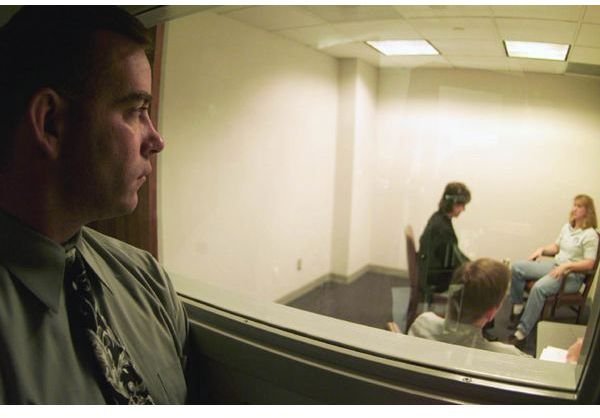Helpful Tips for Cold-Calling in a Job Search
A prospective candidate cold-calling in a job search creates a favorable impression in many ways:
- It shows the candidate’s initiative and ability to undertake unpleasant activities.
- The candidate approaching the company is proof that he holds the company in high esteem.
- It saves the company the time and effort to advertise for the vacancy, and does away with the bother of having to process hundreds of unwanted applications.
- Like it or not, it forces the company to pay individual attention to the candidate. In contrast, the plethora of resumes received following an advertised vacancy receive only a passing glance.
But How to Cold Call?
Effective cold-calling requires researching the company and its prospects before the call, preparing and customizing the pitch, creating a rapport, getting the timing right, and persistence.
Image Credit: Wikimedia Commons/United State Federal Government
Research the Company
Indiscriminate cold-calling by personal visit, telephone, or even email is counterproductive for many reasons:
- It forces the applicant to distribute hundreds of generic resumes that invariably fail to impress, and recruiters can easily make out that the candidate is cold-calling just about everyone.
- The increased rate of rejection leads to demoralization.
The best approach is to cold-call companies after due research on the nature of business, the work environment, growth opportunities, possible vacancies, and the like. Ways to undertake such background research include:
- The company website and reviews in the internet.
- Reaching out to friends or friend’s friends working in the company.
- Company reports in newspapers, magazines, and other publications.
The Pitch
Cold-calling generally entails creating a standardized pitch apart from the resume. While this basic principle holds, a good approach is to customize cold-calling pitches for the company. A good pitch contains a brief candidate introduction, education, and experience, altogether not exceeding a few sentences, and needs to convince the recruiter that the candidate is genuinely interested in working for the company and has the potential to add value to the company.
A company-specific covering letter and resume, aligned with the company’s visions and requirements, works best. Identifying the name of the recruiter, usually the HR head or the CEO during the research phase, helps in customizing the pitch and creates favorable information.
Rapport
Cultivating an acquaintance with someone working in the company, through a professional club, networking sites such as LinkedIn, Facebook, or others gives a manifold boost to the chances of securing an interview. Routing the application through the acquaintance works even better, for at the very least it ensures the resume reaches proper hands. At best it might pass as a referral, the candidate source that most companies prefer.
Failure or inability to cultivate a rapport with someone working in the company need not deter the cold-calling. The second best option is to strike up a conversation with the gatekeeper, that is the human resource department staff or the front office clerk who accepts the resume. This helps ensure that the resume reaches the concerned person, helps follow-up on the status of the application, and even secures tips on any impending resignations or existing vacancies.
Timing
A crucial factor for the success of cold-calling in a job search is timing. Receiving cold-callers is unscheduled work for the recruiter and works best when the recruiter is not busy with his or her commitments. Early mornings, when the pressure of the day’s work has not yet started to get on the head, is usually the best time to cold-call. Conversely, evenings when the recruiter is hard-pressed to finish his work and go home is usually the worst time to cold-call.
The key to success in cold-calling is persistence. Some companies reject cold-callers outright, and some recruiters might be rude or offensive. The vast majority will retain the resume, never consider it, and ignore any follow-up emails. A few companies, however, do consider them. A few others might consider a resume on receipt of a follow-up email, and this makes the effort worth its while.
